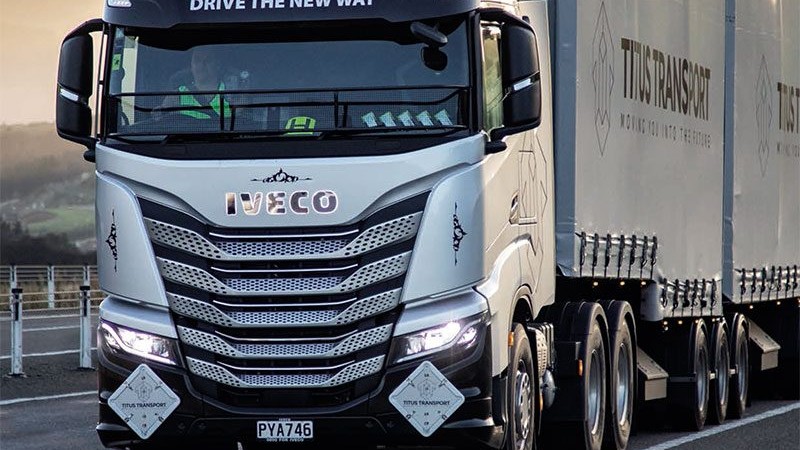Reading between the numbers

In the past year, I recall coming across more speeding drivers than speed cameras, more drivers who got into their cars after a night out than police checkpoints, and an increasing number of drivers distracted by mobile phones. Sadly, I’m not surprised after reading the recently published Public Attitudes to Road Safety 2022 report undertaken by Kantar Republic for Waka Kotahi NZ Transport Agency.
This annual survey measures New Zealanders’ attitudes to nine road safety-related topics. Let’s look at some of the most telling findings and help the agency decipher it all.
Speed, the perennial bogeyman of road safety campaigners, seems to be something that should be left well alone. Seven in 10 New Zealanders don’t have a problem with 100km/h on the open road; eight in 10 don’t take issue with 50km/h in towns and cities. Twenty percent think the open road limit should be raised (8% lowered), while 10% think the urban limit should be lowered (6% raised). Ninety-two percent have no issues with lower limits around schools.
Most respondents are logical enough to understand that higher speed increases the likelihood of a crash (79%) and serious injury (96%). However, the perception of what speed should be considered ‘speeding’ varies.
The takeaway: leave the speed limits well alone and focus on greater enforcement and education.
Or infrastructure. The number of New Zealanders who consider the country’s roads to be ‘at least fairly safe to travel on’ is decreasing – from 79% in 2021 to 71%. Put another way, fewer than one in five consider the country’s roads very safe, and the number of those considering them unsafe has increased from 19% in 2021 to 26%.
What makes the country’s roads unsafe? Unsurprisingly, the grouping ‘road design and maintenance’ ranked highest among 64% of the total respondents, with the main issues therein being road surface/quality, road design and road maintenance. Closely following was the grouping ‘road user concerns’, at 51% of the total – the key issue identified therein was bad driving.
The takeaway: put more effort into fixing roads that are deteriorating or in need of a design rethink and do something to raise driving standards.
How about tackling impairment and distraction, because more can clearly be done? While just 4% are comfortable having more than one or two standard drinks in an hour before driving, 56% are comfortable having just one or two.
Worryingly, though, three in 10 admit it is difficult to track what they’re drinking in social occasions. Eighteen percent would use back streets after drinking if unsure whether they are over the limit and one in 10 has claimed to have driven slightly intoxicated at least once in the past 12 months, the same for those affected by either prescription or other drugs.
We’re a distracted bunch, too; 54% have made hands-free calls while driving in the past month and 21% handheld calls. Three in 10 drivers claimed to have texted while driving and 12% admit to checking or replying to social media while driving. Call me cynical, but those numbers seem pretty low – especially considering only 15% think it is likely for a person who is using a handheld cell phone or texting while driving to be caught by police, three in five consider it unlikely and those considering it very unlikely has increased from 23% in 2021 to 29%.
The takeaway: well, this brings us to the quandary that is enforcement and the apparent perception that one can ‘get away with it’.
More New Zealanders (43%) think it’s unlikely for a person who breaks a traffic law – other than speeding or drink-driving – to be stopped by the police than likely (30%). It’s little different when talking exclusively about speeding or drink-driving – 48% agree that the risk is small of being caught for either.
But what of the repercussions if you are caught? While the perceived chance of getting a speeding ticket if driving over the speed limit on the open road remains high, 41% think speeding penalties are not very severe. And while almost as many believe there is a good chance of being stopped at an alcohol checkpoint if driving late at night (41%) as those who don’t (42%), 51% think penalties for drinking and driving are not very severe even if caught. Interestingly, 50% think drink-driving laws are quite effective in reducing road deaths; 45% think they are not.
One in two New Zealanders is satisfied with the effort police put into catching people breaking road safety laws, while 36% think efforts should be increased.
The takeaway: I’ve always believed that a police car in the rear-view mirror is one of the most effective tools for improving road safety. Police visibility goes a long way to calming down errant drivers, especially if they know there’s a better-than-good chance they’ll be pulled up for it and – critically – the law will be enforced.
So long as drivers know their actions carry little consequence, Road to Zero will remain an unreachable, ideological fantasy.

Read more
On land and sea
0 Comments5 Minutes
International learnings
0 Comments4 Minutes
The image we protray
0 Comments5 Minutes





